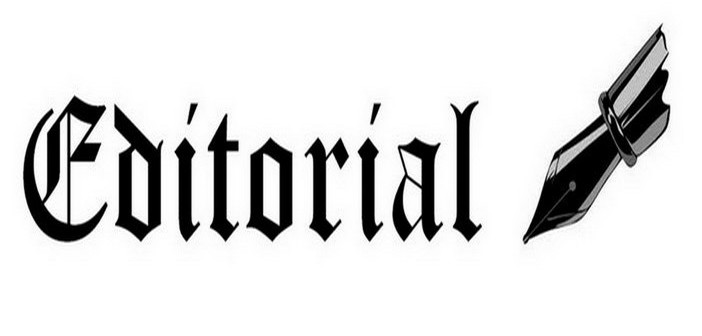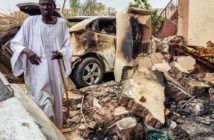Le Yalta du Moyen-Orient a volé en éclats…
Le réveil de la guerre froide entre Moscou et Washington (suivie par ses vassaux atlantistes), qui a mis l’Ukraine à feu et à sang et crispe les discours autour de la lutte contre l’État islamique en Syrie et l’avenir du président Bashar al-Assad, ne doit pas occulter une autre « guerre par procuration » qui, sans être tout à fait étrangère à la première, ébranle depuis des mois le Moyen-Orient, devenu un vaste champ de bataille où s’affrontent Riyad et Téhéran.
L’Iran, depuis la victoire électorale du camp « réformateur », en juin 2013, se sent manifestement pousser des ailes ; et le récent accord sur le nucléaire, qui rend à l’Iran sa place dans le concert des nations, lui permet de dorénavant résonner en grosse caisse.
La zone d’influence saoudienne subit ainsi les attaques iraniennes, coup après coup : en Irak, où la coalition gouvernementale, appuyée par les milices paramilitaires chiites, s’affirme davantage encore face à une population sunnite stigmatisée et accusée de servir Daesh ; en Syrie, où, sous l’égide de Moscou désormais, les milices iraniennes combattent côtes à côtes avec les bataillons du Hezbollah libanais, qui, depuis 2011, s’est hissé au pouvoir par les urnes, à Beyrouth ; au Yémen, où les Houthis se sont emparés de Sanaa, contraignant le président pro-saoudien Hadi à s’exiler à Aden, dans le sud du pays, et ce malgré l’intervention militaire de l’Arabie saoudite qui a pris la tête d’une coalition sunnite, réunissant derrière sa bannière les Émirats arabes unis, le Bahreïn, le Koweït, le Qatar, enfin remis au pas –Doha, qui avait beaucoup misé sur les Frères musulmans, en Égypte comme en Syrie, n’avait pas du tout apprécié, en effet, le soutien de Riyad au maréchal al-Sissi, et le torchon a longtemps brûlé entre les deux monarchies-, mais encore l’Égypte, le Maroc, la Jordanie et le Soudan…
The Middle Eastern Yalta has been blown to pieces…
The awakening of the cold war between Moscow and Washington (followed by its NATO vassals) that lit Ukraine on fire and turned its ground bloody also complicates the discourse around the struggle against the Islamic State in Syria. Also the future of president Bashar al-Assad is open for discussion, but none of those events should hide another “war by procuration”, that weakens the Middle East since many months, having been transformed into a battlefield between Riyadh and Tehran.
Since the electoral victory of the “reformer” camp in Iran in June 2013, the country apparently feels itself propelled and the recent nuclear agreement, which returns Iran to its place in the concert of nations, permits it to as of now resonate with a grave voice.
The Saudi zone of influence thereby suffers Iranian attacks, stroke after stroke: in Iraq, where the governmental coalition, supported by paramilitary Shiite militia, continuously affirms itself within a stigmatised Sunni population, accused of serving Daesh; in Syria, where under the lead of Moscow Iranian militia fight alongside Lebanese Hezbollah battalions, which since 2011 has gotten to power through the voting booths in Beirut; in Yemen, where the Houthis have taken over Sanaa, forcing the pro-Saudi president Hadi to exile himself in Aden, in the South of the country – despite the military intervention of Saudi Arabia, heading an international Sunni coalition, with the United Arab Emirates, Bahrain, Kuwait, Qatar (that is finally marching to the rhythm again, after Doha bet a lot on the Muslim Brotherhood, in Egypt as well as in Syria, and did not appreciate Riyadh’s support of al-Sissi – causing bad humour between the two monarchies), but also Egypt, Morocco, Jordan and Sudan…
نهاية مالطا الشرق الأوسط
صحوة الحرب الباردة بين موسكو وواشنطن المدعومة من حلفائها الأطلسيين أشعلت الوضع في أوكرانيا وخلقت خطابا متوترا وغير متناسق فيما يتعلق بقتال الدولة الإسلامية في سوريا وبمصير الرئيس السوري بشار الأسد مع ذلك كل هذه الأمور لا يجب أن تطغى على حرب أخرى بالوكالة ليست منفصلة عن الأولى ، حرب تضرب الشرق الأوسط كما أصبحت ساحة معركة واسعة تتواجه فيها طهران والرياض
لقد أعطى الفوز الانتخابي للمعسكر الإصلاحي في حزيران 2013 دفعة قوية لإيران ثم جاء الإتفاق النووي ليعيد لها مكانتها بين الأمم الأخرى ويسمح لها من الآن فصاعدا أن تلعب دورا أكبر على الساحتين الإقليمية والدولية
في هذا السياق يمكن القول أن منطقة النفوذ السعودية تتعرض لهجمات من قبل إيران : في العراق حيث التحالف الحكومي المدعوم من الميليشيات العسكرية الشيعية يترسخ أكثر فأكثر في مواجهة السنة المتهمين بدعم داعش وفي سوريا وتحت رعاية موسكو فإن الميليشيات الإيرانية تقاتل من الآن فصاعدا إلى جانب حزب الله اللبناني الذي نجح في انتخابات عام 2011 في بيروت أما في اليمن فقد سيطر الحوثيون على صنعاء وأجبروا الرئيس الموالي للسعودية هادي عبد ربه على اللجوء إلى عدن في جنوب البلاد ومن ثم إلى السعودية على الرغم من التدخل العسكري السعودي على رأس تحالف سني وحد خلفه الإمارات العربية المتحدة والبحرين والكويت وقطر – حيث الأخيرة راهنت كثيرا على الأخوان المسلمين في سوريا ومصر ولم تنظر بعين الرضا لدعم السعودية للجنرال السيسي- أيضا مصر والسودان والمغرب والأردن لكن بدون مشاركة الحليف الباكستاني التقليدي الذي تمنع بدبلوماسية عن المشاركة وذلك لأنه لا يدعم السياسة التوسعية التي تنتهجها الرياض كما يعتبر البعض في إسلام آباد
تضرب إيران وبقسوة في كل الاتجاهات حتى في مملكة البحرين هذا البلد الصغير جغرافيا لا ينجو من النشاطات العدوانية لجاره والذي يحاول الاستفادة على ما يبدو من الشيعة في المنامة من أجل التغلغل وزعزعة الاستقرار في الأرخبيل الواقع في الخليج العربي الفارسي



